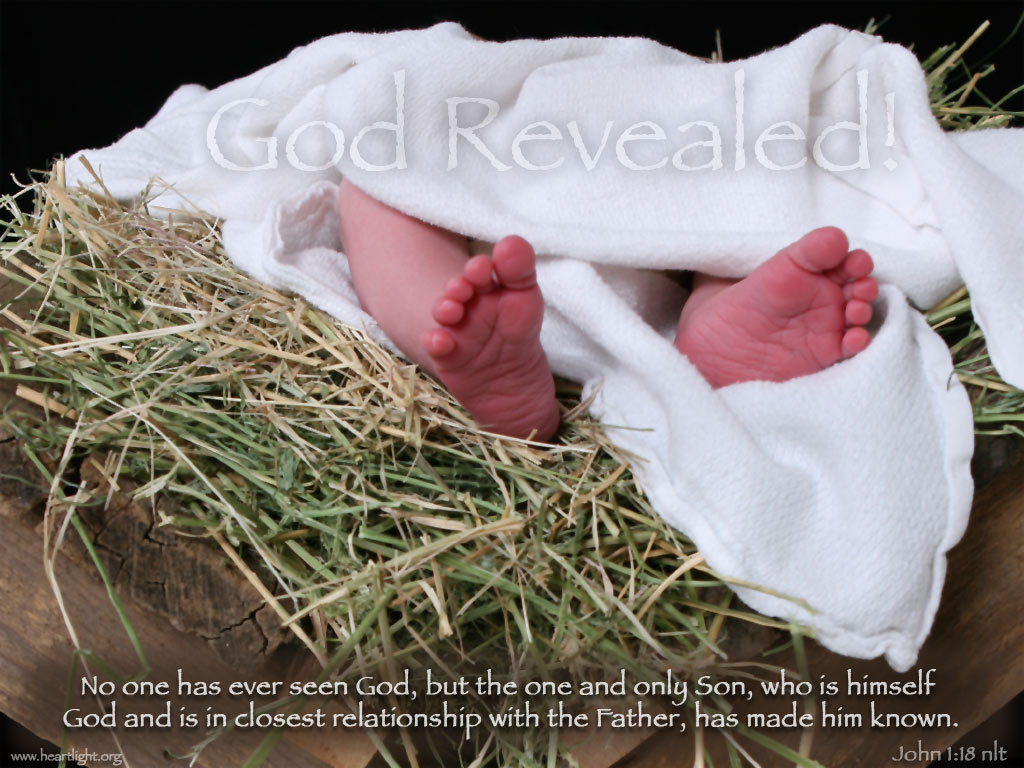“Living where you did must have been very exciting,” I suggested to Tubby as he shifted uncomfortably in his hospital bed.
“Well to be honest,” Tubby responded, “all these places were fun, exotic, and exciting for about three months. Then, they’re 'just home' - we quit noticing their beauty and novelty. Little-by-little we became immune to their charm. They no longer seemed exotic to us. They were just the familiar place where we lived.”
Recently, I was reading through the Gospel of Luke. I came across a familiar passage usually reserved for the Christmas season. As I pondered this passage, then re-read it, and re-read it again, I realized I was suffering from the “Tubby effect.” Over-familiarity had stolen the wonder in my approach to many powerful messages in the Scriptures. This day, however, the Holy Spirit nudged me to linger. Because I did, the Spirit helped me reawaken to the wonder of God’s incarnation in Jesus. Only this time, the umpteenth time I've read this passage, the grace of it all was fresh and new:
Suddenly, an angel of the Lord appeared among [the shepherds], and the radiance of the Lord’s glory surrounded them. They were terrified, but the angel reassured them. “Don’t be afraid!” he said. “I bring you good news that will bring great joy to all people. The Savior - yes, the Messiah, the Lord - has been born today in Bethlehem, the city of David! And you will recognize him by this sign: You will find a baby wrapped snugly in strips of cloth, lying in a manger” (Luke 2:9-12 NLT).

If you have been a follower of Jesus for a long time, you have probably seen, read, and heard these words more times than you can count. If you are like me, you might even remember the words in the voice of the Christmas special, “A Charlie Brown Christmas.” Unfortunately, our familiarity can steal the starkness of God’s grace in this all-important story of Jesus' birth.
Notice the radical incongruity inherent in Luke's words. How do “Savior… Messiah… Lord” fit with “baby… strips of cloth… in a manger”? They don't fit! So, why does Luke present Jesus' birth as the oxymoron of the incarnation? Why does Luke introduce us to Jesus at the intersection of “the radiance of the Lord’s glory” and “shepherds staying in their fields”? Because this collision of grace - the wondrous and the common… the glorious and the mundane… the Messiah and strips of cloth… the Lord and a manger - brings us God’s greatest gift: Jesus!
We must not lose our sense of astonishment with this grace. The almighty, eternal, and unapproachable God has made himself available in a vulnerable baby placed where farm animals licked up their grain. Holiness and hope drew near each other in a stable. Greatness and grace reveal themselves in a world so real we can smell the manure and hear the breathing sounds of the Son of God.
God has been here!
Our world has been visited by heaven’s glory.
Grace has become holdable.
Jesus is his name.
Don’t miss the discontinuity, incongruity, and stark contradiction of this collision of realities. We need glory, grace, salvation, and Jesus to be real in this place we live - our world of discontinuity, incongruity, and stark contradiction. Thank God! Jesus makes grace real in the grit and grime of our human reality so glory, grace, and salvation can be ours!
For this is what the high and exalted One says-he who lives forever, whose name is holy:I live in a high and holy place,(Isaiah 57:15)
but also with the one who is contrite and lowly in spirit,
to revive the spirit of the lowly
and to revive the heart of the contrite.












Comments
Have thoughts on this article? Leave a comment